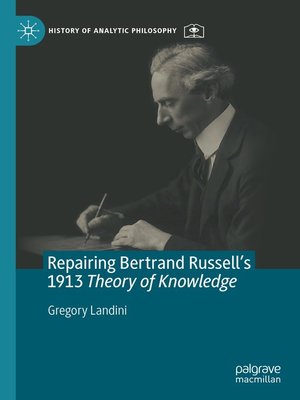Repairing Bertrand Russell's 1913 Theory of Knowledge
ebook ∣ History of Analytic Philosophy
By Gregory Landini

Sign up to save your library
With an OverDrive account, you can save your favorite libraries for at-a-glance information about availability. Find out more about OverDrive accounts.
Find this title in Libby, the library reading app by OverDrive.



Search for a digital library with this title
Title found at these libraries:
| Library Name | Distance |
|---|---|
| Loading... |
This book repairs and revives the Theory of Knowledge research program of Russell's Principia era. Chapter 1, 'Introduction and Overview', explains the program's agenda. Inspired by the non-Fregean logicism of Principia Mathematica, it endorses the revolution within mathematics presenting it as a study of relations. The synthetic a priori logic of Principia is the essence of philosophy considered as a science which exposes the dogmatisms about abstract particulars and metaphysical necessities that create prisons that fetter the mind. Incipient in The Problems of Philosophy, the program's acquaintance epistemology embraced a multiple-relation theory of belief. It reached an impasse in 1913, having been itself retrofitted with abstract particular logical forms to address problems of direction and compositionality. With its acquaintance epistemology in limbo, ScientificMethod in Philosophy became the sequel to Problems. Chapter 2 explains Russell's feeling intellectually dishonest. Wittgenstein's demand that logic exclude nonsense belief played no role. The 1919 neutral monist era ensued, but Russell found no epistemology for the logic essential to philosophy. Repairing, Chapters 4–6 solve the impasse. Reviving, Chapters 3 and 7 vigorously defend the facts about Principia. Studies of modality and entailment are viable while Principia remains a universal logic above the civil wars of the metaphysicians.







